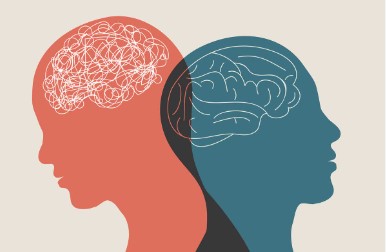The Importance of Addressing Dual Diagnosis in Recovery

Addressing dual diagnosis is essential in addiction recovery, as it deals with individuals suffering from both substance use disorders and mental health conditions. We can offer more effective treatment approaches by understanding the significance of treating both issues simultaneously.
In this article, we will explore why dual diagnosis matters in recovery, the challenges it presents, and how Prayas Sewa Samiti, one of the Best rehab centres in Dehradun can provide specialized care for those facing this complex issue.
Importance of Addressing Dual Diagnosis
Dual diagnosis refers to the condition where an individual is simultaneously struggling with a mental health disorder, such as anxiety or depression, and a substance use disorder. Addressing dual diagnosis is crucial because untreated mental health issues can often fuel addiction, and untreated addiction can worsen mental health problems.
When someone faces both of these challenges, the need for a comprehensive treatment plan becomes even more critical. At the best rehab centre in Dehradun, the treatment of dual diagnosis focuses on managing both conditions simultaneously, ensuring a higher chance of long-term recovery.

What is Dual Diagnosis?
Dual diagnosis, also referred to as co-occurring disorders, is a term used when an individual experiences both a substance use disorder (SUD) and a mental health disorder, such as depression, anxiety, bipolar disorder, schizophrenia, or post-traumatic stress disorder (PTSD). Studies suggest that nearly half of people with a severe mental illness also experience a substance use disorder at some point in their lives.
The relationship between mental health and addiction can be complex. For some individuals, substance abuse may be a way to self-medicate symptoms of a mental health condition. For others, long-term substance abuse can contribute to the development of mental health disorders, especially when the brain’s chemical balance is altered.
Why is Addressing Dual Diagnosis So Important in Recovery?
1. Improved Treatment Outcomes
Addressing dual diagnosis allows for integrated treatment where both conditions are treated simultaneously. This holistic approach is known to improve outcomes as individuals receive targeted therapy for their addiction and mental health struggles, rather than treating them separately.
2. Preventing Relapse
If only one condition is treated, the untreated disorder can trigger relapse. For instance, if someone with depression receives treatment for their addiction but not for their depression, they may turn to substances again as a coping mechanism for their emotional struggles.
3. Increased Understanding of the Root Causes
Addressing dual diagnosis helps patients and healthcare providers better understand the root causes of their addiction. By identifying how mental health conditions contribute to addiction, a more personalized and effective recovery plan can be developed.
4. Comprehensive Approach to Healing
Addiction and mental health disorders impact different areas of a person’s life, including their emotional, social, and physical well-being. A dual diagnosis approach acknowledges the need for treatment that goes beyond just the substance abuse or mental health issue. It focuses on healing the whole person.
5. Personalized Care Plans
Individuals with both addiction and mental illness (dual diagnosis) face unique challenges. Their conditions often interact, with one influencing the other. For example, addiction can trigger mental health issues or substance use might be used to cope with pre-existing conditions.
Effective treatment for dual diagnosis requires an integrated approach. This means a team of professionals (therapists, psychiatrists, and addiction counsellors) work together to create a personalized treatment plan that addresses both the addiction and the mental health disorder simultaneously.
Common Challenges in Dual Diagnosis Treatment
1. Overlapping Symptoms
Many symptoms of addiction and mental health conditions overlap. For example, both depression and substance abuse can cause mood swings, fatigue, and irritability, which can make it difficult to distinguish between the two. This overlap complicates the diagnosis and treatment process.
2. Stigma and Misunderstanding
Individuals with dual diagnosis often face stigma due to the misconception that they are simply “bad” or lack willpower. This can prevent people from seeking help. It’s important for treatment centres, including the best rehab centre in Dehradun, to offer a compassionate, non-judgmental environment to address both issues.
3. Complicated Treatment Approaches
Because both disorders affect different aspects of a person’s health, treating dual diagnosis requires a comprehensive, multi-disciplinary approach. This often includes therapy, medications, and lifestyle changes tailored to the individual’s specific needs.
What Treatments Are Available for Dual Diagnosis?
1. Integrated Therapy
The most effective treatment for dual diagnosis involves integrated therapy. This combines mental health counselling and addiction treatment, ensuring that both disorders are addressed at the same time. Therapies such as Cognitive Behavioral Therapy (CBT) and Dialectical Behavior Therapy (DBT) are commonly used.
2. Medication-Assisted Treatment (MAT)
For individuals with both addiction and mental health disorders, medication-assisted treatment (MAT) can play a crucial role. MAT helps manage withdrawal symptoms, reduces cravings, and stabilizes mental health, supporting the recovery process.
3. Support Groups and Peer Counseling
Support groups provide individuals with the opportunity to connect with others who are facing similar challenges. These groups can offer emotional support and practical advice for navigating recovery. Peer counselling can also help by providing insights from those who have experienced dual diagnosis firsthand.
How Can the Best Rehab Centre in Dehradun Help?
The Prayas Sewa Samiti, the best rehab centre in Dehradun is equipped with specialized staff and resources to handle the dual diagnosis. Offering a combination of individualized therapy, group counselling, and aftercare programs, these centres ensure that both addiction and mental health conditions are addressed effectively. They use evidence-based practices to create a safe and supportive environment for healing.
It is important to note that the government also plays a vital role in supporting individuals struggling with addiction through various government initiatives.
Conclusion
Addressing dual diagnosis in recovery is essential for long-term success. Treating both mental health conditions and substance use disorders simultaneously helps improve outcomes, prevent relapse, and provide a comprehensive understanding of the root causes of addiction.
Choosing the best rehab centre in Dehradun that specializes in dual diagnosis treatment can provide individuals with the support they need to overcome these challenges and achieve lasting recovery.
Frequently Asked Questions About Dual Diagnosis
1. What is the first step in treating dual diagnosis?
Ans: The first step is getting a proper evaluation from a professional to diagnose both the addiction and the underlying mental health disorder. Once identified, an integrated treatment plan can be developed.
2. Can dual diagnosis be treated?
Ans: Yes, dual diagnosis can be treated effectively with the right approach. Recovery involves addressing both disorders simultaneously through a combination of therapy, medications, and lifestyle changes.
3. How long does recovery take for individuals with dual diagnosis?
The recovery process for dual diagnosis can vary depending on the individual’s specific circumstances, but it typically involves long-term therapy and support. It’s crucial to follow through with aftercare to maintain long-term sobriety and mental health stability.
4. How to Choose the Right Rehab Centre for Dual Diagnosis?
Ans: When choosing a rehab centre for dual diagnosis treatment, it’s important to look for one that specializes in treating both addiction and mental health disorders. The best rehab centre in Dehradun should have experienced staff, evidence-based treatments, and a comprehensive approach to care. This ensures that you receive the support and treatment you need to recover fully and manage both conditions effectively.